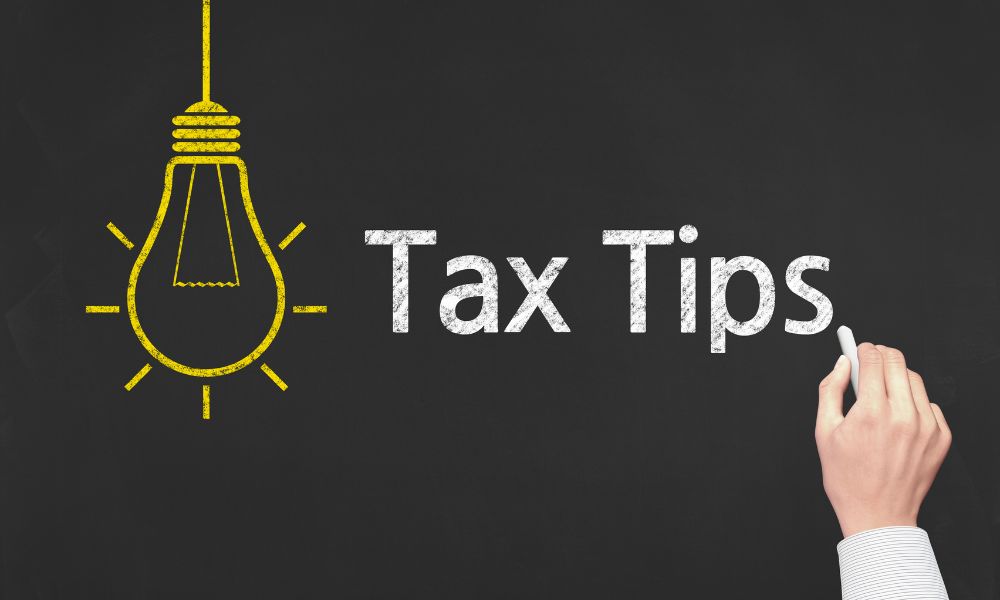
As a business owner, you should be in the business of making a profit. Of course, one of the best ways to increase your profits is to reduce your tax bill.
Fortunately, there are hundreds of ways for businesses to achieve this. Follow these 31 essential tax tips to keep more of your profits each year!
1. Understand Income Tax Liability
While you don’t need to be a tax expert, a basic understanding of the rules of tax liability can go a long way. Most importantly, you will also know when to contact your tax advisor!
2. Shift Your Income to Later Years
There are many ways to achieve this—through tax-deferred retirement plans or annuities, by collecting receivables in January versus December, and more.
3. Pull Income Forward If You Anticipate a Big Year
This is one of the biggest reasons why tax planning should cover a two-year period. You need to look ahead and consider next year’s income when planning for the current year.
4. Accelerate Your Deductions
Determine what can be paid before the end of the year by reviewing your income statement.
5. Prepay Expenses Using the IRS Safe Harbor Rule
This rule allows cash-basis taxpayers to prepay and deduct qualifying expenses up to an entire year in advance.
6. Pay Deductible Expenses With a Credit Card
Doing this will allow you to take the deduction in the year that you charge the bill rather than the year in which you pay it.
7. Shift Income to Taxpayers in Lower Tax Brackets
Whether it’s a C-corporation or other family members, save money by shifting money from a higher tax bracket to a lower one.
8. Turn After-Tax Expenditures Into Tax-Deductible Items
Having a side-hustle can help you deduct items you would buy anyway, but on an after-tax basis.
9. Claim Any Adjustments to Income, Deductions, and Credits
There are thousands of opportunities for businesses to lower their tax bills. Make sure you give your tax preparer time to ask you plenty of questions and vice versa!
10. Choose the Right Entity for Your Business
Most small businesses are set up as partnerships or S-corporations, as they offer a bevy of tax benefits.
11. Hire Family Members
If you have children, for example, employing them at your company allows you to deduct the payments.
12. Consider Setting Up a Medical Reimbursement Plan (MRP)
You must be careful here, as you cannot discriminate. It’s best to consult with your tax advisor first.
13. Consider Setting Up a Health Savings Account (HSA)
If you don’t have a family-owned business, an HSA is a great alternative.
14. Claim a Home Office Deduction
This deduction must be related to your principal place of business. A home office may qualify if it is detached from your residence.
15. Rent Out Your Home to Your Business for Fewer Than 15 Days
Doing this allows the business to deduct the rental; plus, you don’t have to personally report the income.
16. Document All Deductible Business Meals
Keep all receipts and jot down any pertinent details—including who you went with and why you went.
17. Consider Paying Property Taxes in December
If your property taxes are due in January, paying them in December will make them deductible on your most recent tax return.
18. Look at Retirement Plans
There are all types of tax-deductible retirement plan options available. Talk to your tax advisor!
19. Buy Equipment Before Year’s End
The end of the year is usually the best time to buy equipment, due to tax and cash flow purposes.
20. Claim a Bonus Depreciation Deduction
In 2022, you can claim a bonus depreciation deduction of up to 100% on your equipment.
21. Consider the Qualified Improvement Property Incentive
This covers interior improvements to properties that you rent—including HVAC, roof, fire protection, and security systems.
22. Buy Your SUV, Pickup, or Van by Year’s End
Don’t buy a new vehicle for the sake of a tax write-off. If you need it, however, try to squeeze it in by year’s end.
23. Buy Your Business Car By Year’s End
Similarly, purchase a business car before the end of the year—only if you need it!
24. Write Off Bad Debt
If you’re on an accrual basis and haven’t collected on an account in a while, write it off so that you don’t pay taxes on it.
25. Write Off Old Inventory
If your inventory is starting to age and is worth less than you originally paid for it, write it off.
26. Donate Old Equipment and Inventory
If you can’t sell your old equipment, consider donating it rather than hanging on to it.
27. Don’t Neglect the 20% Business Deduction
Since 2018, only 80% of qualified business income is taxed. This particular deduction is complicated, however, so be sure to discuss it with your tax advisor.
28. Switch to Cash-Basis Accounting
If you don’t want to be taxed until your customers pay you, consider switching to a cash-basis method of accounting.
29. Design a Business Trip to Include Personal Days
Even if you don’t work on some of these days, you can still treat it as a business trip. Just be sure to consult your advisor on this first.
30. Deduct Your Smartphone and Provider
You might even consider providing smartphones to your employees as a tax-free fringe benefit.
31. Put a Plan Together for Reimbursing Employee Expenses
Have your employees turn in their expenses and reimburse them. This allows you to take the deductions, and your employees won’t have to pick these expenses up as income.
